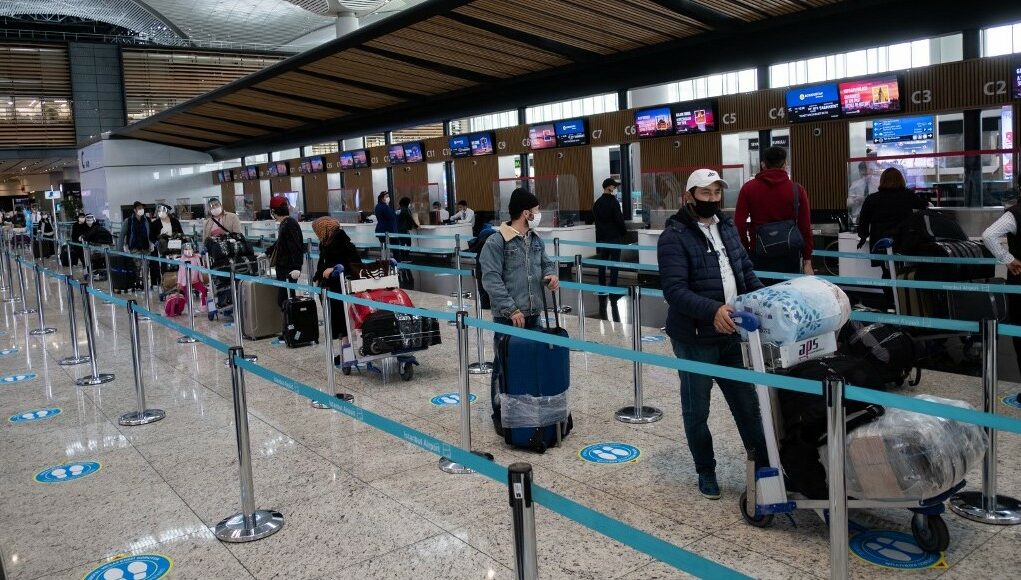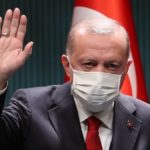Thousands of people have been detained or deported at airports by Turkish authorities because of their social media posts, the Stockholm Center for Freedom reported citing Independent Turkish.
According to Seyit Sönmez of the İstanbul Bar Association, thousands of people have been deported or detained at airports for “terrorism propaganda,” “insulting the president” and “inciting hatred among the public.” While the majority of these people are Turks with dual citizenship, others are people of Turkish origin who don’t hold Turkish citizenship.
In some cases, individuals’ mobile phones and social media accounts are checked by authorities at the border gates. If the person does not have Turkish nationality and authorities locate anything problematic on their phones, they are deported on the pretext of posing a security threat. If the individual does have Turkish citizenship they are detained and issued a travel ban to prevent them from returning to their country of residence.
“I currently have 10 cases concerning Turkish citizens being prosecuted for their social media posts upon their arrival in Turkey. I know there are thousands of lawyers in İstanbul alone like me,” Sönmez said, and added that he had contacted some deputies to pose a parliamentary question on the matter.
Sönmez claimed there was a special government unit following the social media activities of Turks living abroad. He added that the detainees were mostly activists and members of the political opposition and were put on a register by this unit.
Sönmez said once the unit registers the activities of dissidents, an official investigation is launched and a warrant issued for their detention upon entering Turkey. He added that it was easy for authorities to trace the online activities of Turks living abroad because they are few in number and there are already people who notify authorities about posts critical of the government.
“Many people are afraid to return to the country, and they call me to ask if I can check whether a warrant has been issued for them,” Sönmez said.
“One of my clients who shared a post on social media criticizing the Turkish military’s advancement into northern Syria was issued a travel ban,” said Sönmez. “He was not able to return to Austria, where he lived, and his restaurant went out business in the meantime.”
Turgut Öker, a former president of the European Alevi Bektashi Confederation, said there were 11 court cases against him because of his social media activities. Öker said he lived in Germany and was detained five times at a Turkish airport and is still under a travel ban.
Citing numbers provided by the German Embassy in Ankara, Öker said there were 69 people in June alone from Germany who were either deported or detained at the airport.
Alevis, Kurdish leftists and critics of the government constituted the majority of people who were prosecuted. According to Öker in most cases people spied on their neighbors and alerted Turkish authorities about social media posts critical of the Turkish government. He said Switzerland had deported one person who spied on his neighbors and gave information on them to Turkish authorities.
“They want to rid the country [Turkey] of critically minded people,” said Öker. “Indeed, youngsters from Alevi and Kurdish families and those who are not happy with the regime in Turkey decide not to go back to their motherland to avoid prosecution.”
Zeynel Özen, a deputy from the pro-Kurdish Peoples’ Democratic Party, said he knew of people who were investigated and tried for their social media activities as far back as 2012. He said many people lost their jobs and suffered in various ways because they were unable to return to their country of residence.
Turkey is notorious for removing critical content on social media. A report drafted by the Freedom of Expression Association (IFÖD) showed that Turkey made the highest number of applications to Twitter for content removal in the first half of 2019.
Turkey’s Interior Ministry announced in July 2020 that Turkish police investigated 14,186 and took legal action against 6,743 of them on charges of spreading terrorist propaganda, inciting the public to hatred and enmity, instilling fear in and causing panic among the public or containing provocative content.
Source: TM



